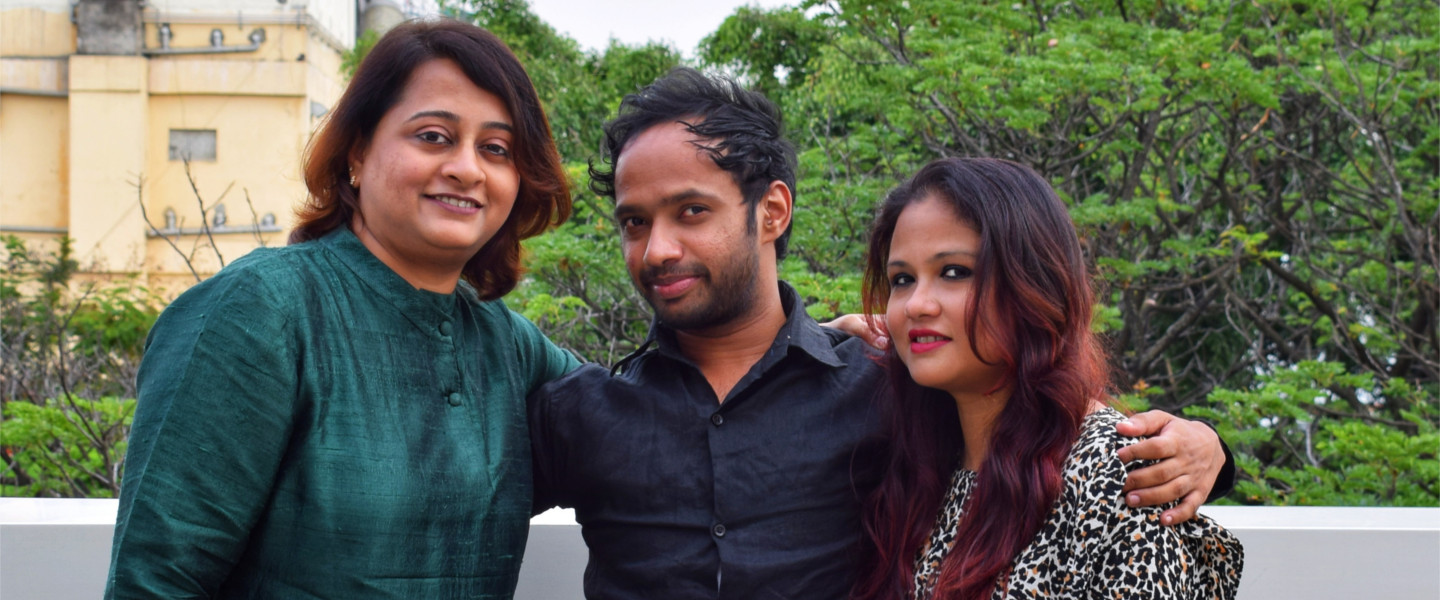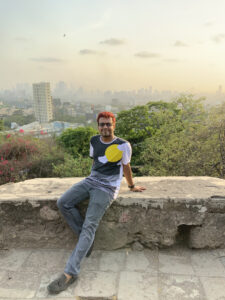IDAHOTB 2019: a celebration of inclusivity


Every year on May 17, people across the globe celebrate the International Day Against Homophobia, Transphobia and Biphobia (IDAHOTB). It’s a day to celebrate diversity, and to remind ourselves that we still have a long way to go to ensure that LGBT+ people are accepted fully into society.

This year’s IDAHOTB is of particular significance to those in India. On September 6 2018, the country’s supreme court unanimously ruled to decriminalise homosexuality, ending what had been a complicated legal journey and freeing India’s LGBT+ population from the fear of legalised persecution.
Two of our Indian colleagues – Ravi, who works as a Customer Point Verification caller, and Dharm, who works as an Associate Director, Wealth Client Proposition – have welcomed the news with open arms.
“Last year’s verdict on decriminalisation has been a hugely positive step,” says Dharm. “Just 10 years back, I think homosexuality in India was still perceived as a Western import that could damage family values.”
“People in India celebrate 15 August as Independence Day,” says Ravi, “but for the LGBT+ community, true independence came on September 6, 2018.”
For Ravi and Dharm, both of whom came out to friends and colleagues before the events of September 2018, being open about their sexuality hasn’t always been easy, and they have developed their own methods for dealing with those who may not accept them.
“I have always spoken about my sexual orientation to colleagues and friends I am close to,” says Dharm. “When I’m comfortable, I don’t hide who I am. But there have been times when I noticed so much misunderstanding in somebody I was talking to that I felt circumspect, like maybe it would be better to withhold who I was.”
“Decriminalisation is one thing, but attitudes must be guided away from prejudice and disharmony”

Campaigning for diversity in the workplace, and for the equal treatment of LGBT+ people in general, is of paramount importance to Ravi, although as a naturally shy person, and somebody who has experienced marginalisation because of his sexual orientation, he prefers to work for change behind the scenes rather than call people out. “I respect people’s attitudes, their feelings,” Ravi says. “I generally am a reserved person. I don’t like to draw attention to myself, and I can’t force people to accept me. But I do want all colleagues to feel included, whatever their sexual orientation.”
It is that sense of inclusion that must be the ongoing consideration in areas, like India, where perceptions perhaps do not always reflect changes in the law. Decriminalisation is one thing, but attitudes must be guided away from prejudice and disharmony.
“The ruling should make people more welcoming of the LGBT+ community,” says Ravi. “But stigma about homosexuality still exists in India. I have been treated differently at times because of my sexual orientation, and I passionately believe that everybody should be accepted, no matter who they are.”
Dharm agrees that although progress is being made, there is still much to do. “There is still a long way to go in terms of educating the majority in India on LGBT+ rights, but I believe that at least when it comes to the workplace, there has been improvement. Many companies now have ally networks operating within them.”
Ally networks are a vital way for companies to show support to the LGBT+ colleagues and clients in their organisations. Allies across the Standard Chartered footprint, from New York to Singapore, have been a huge help to Ravi. “It feels like a joining of forces,” he says. “My Allies provide a comfort blanket for me when things aren’t going so well.”
“It’s not enough to always rely on others to take action – we should do so ourselves”
“The Ally network provided a feeling of belonging that transformed Ravi,” says Roopa, an Ally and good friend of Ravi’s. “As an Ally, I just want to be there to help create a happy and safe world for my friends. I listen. Having someone to talk to can make a world of difference when one is in a minority. I feel proud of the fact that someone sees me as their trusted ally.”
Bindu, who is also part of the Ally network and works next to Dharm, has had first-hand experience of how bullying can manifest in the workplace. “In a previous role, I worked with a third-party agency,” she says. “One day, the top performer in the team handed in his resignation. I didn’t even realise, but he was being bullied for his sexual orientation. It really made me think about how we all need to be aware of and open to challenging intolerant behaviour.”
If we are to fight for equality, we must act. As Ravi says, “It’s not enough to always rely on others to take action – we should do so ourselves.”
To that end, Dharm and Ravi are working with a group of colleagues to set up an Employee Resource Group that will support LGBT+ colleagues across all our Indian offices. The group will be focused on, among other things, promoting a culture of inclusion for LGBT+ colleagues, providing training for managers, seminars on LGTB+ issues, and involvement in local Pride events.
“It’s about creating a workplace where colleagues can come to work without the fear of being ‘found out’,” says Dharm. “They can be themselves. The Ally network can help achieve that.”
“It’s been my dream to set up this resource group,” says Ravi. “And now, with the help of my colleagues, I’m finally doing it. It feels good to finally be having an open conversation.”
Our diversity is one of our greatest strengths
View our Diversity & Inclusion page
Whether you’re a recent graduate or looking for your next
opportunity, we have the role for you